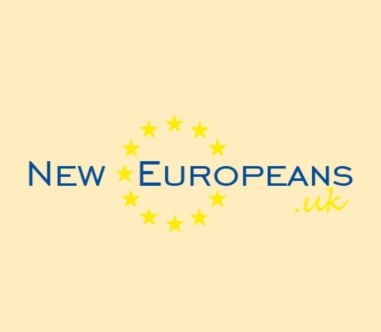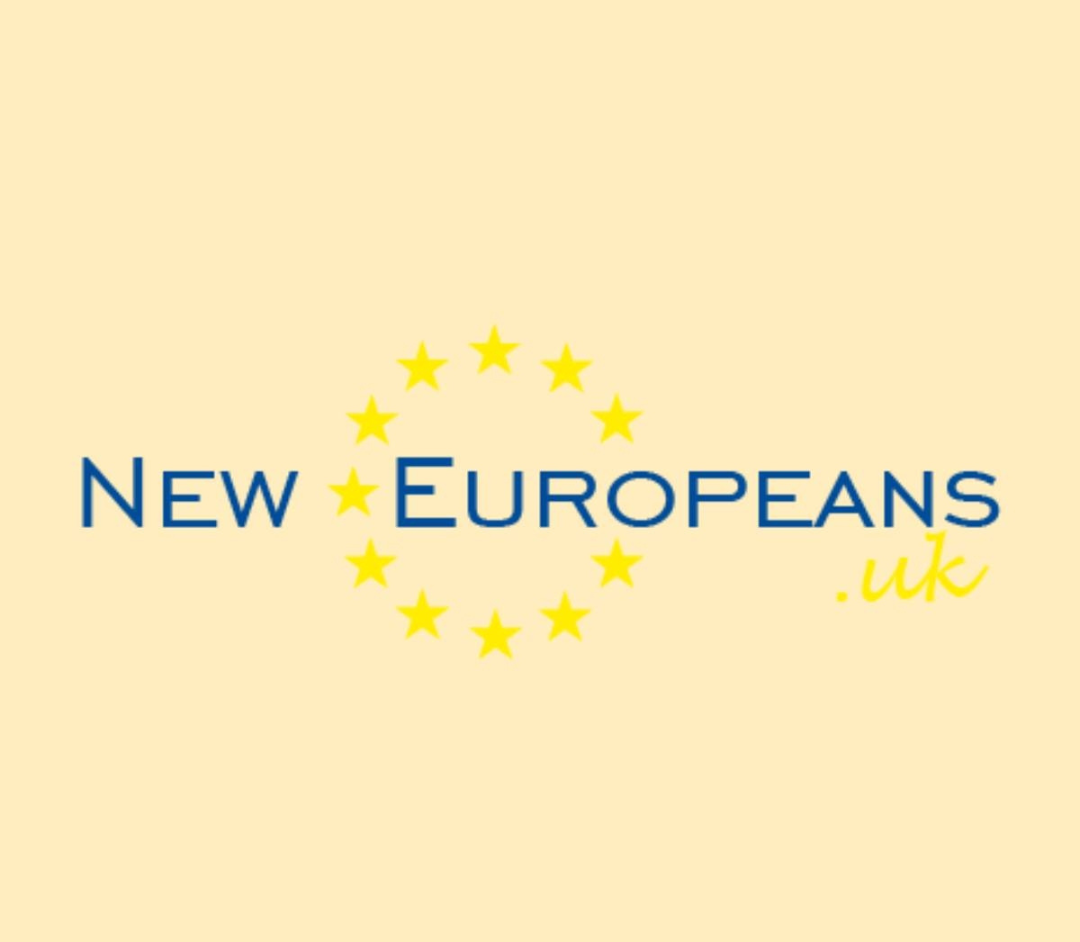A partnership with purpose: Our work with New Europeans
Written by: S. Khan

At Seraphus, we care about improving access to justice. We provide advice services and workshops to charitable organisations and participate in advocacy work to try to address the systemic problems in immigration law. We understand acutely what’s at stake when people cannot access good quality legal advice, and we recognise just how volatile and dangerous the times are politically. With the drumbeat of moral panic about people who are migrants, refugees or seeking asylum, and rapidly changing (anti)immigration laws and policies, we recognise the urgency of working more creatively and collaboratively with community groups to achieve a wider dissemination of accurate knowledge about immigration rules and processes. As an immigration law firm, we have the privilege of knowing how the legal system works and for who, and we want to share this knowledge with those that are subject to the UK’s border regime. As the saying goes, knowledge is power.
One of the areas we have developed significant expertise in is the EU Settlement Scheme (see our work with the EU Delegation and S.A.F.E); a scheme that was intended to be “simple” enough to navigate without legal expertise, and yet (unsurprisingly, perhaps) it is riddled with complexities for many applicants, particularly applicants who are vulnerablised, racialised and minoritised as Black, Asian and minority ethnic and subject to class marginalisation. According to different studies, the process can “aggravate vulnerability”, and risk increasing “existing inequalities, create barriers…and contribute to ongoing marginalisation”, (one such illustration of how the EU Settlement Scheme creates barriers for racialised, vulnerabilised EU citizens are the experiences of Dahaba Ali Hussen, a Black EU citizen, who documented her experiences of being refused settled status on three occasions and, after those mistakes were rectified, then being denied re-entry into the UK). The so-called “simple” and “digital” process has, for some, created a deep uncertainty and distress. Rather than simply securing people’s statuses and rights to be here, some people’s experiences reveal how it can become a tool to further precaritise and marginalise certain people.
Whilst there is some free legal advice and information accessible though organisations in London these organisations are often bursting at the seams trying to support as many individuals as possible with their limited capacity. In addition, a large number of minoritised EU citizens live outside of London and across the UK. As legal practitioners, we were concerned about areas where there is a shortage of advice in the EU Settlement Scheme available. We are particularly concerned about applicants that may, as mentioned above, be increasingly vulnerabilised and marginalised by the process and in greater need of advice and support to successfully complete their application and secure their immigration status. One such area is Leicester, which is home to one of the largest groups of EU citizens outside of London. Our concern has led us to the remarkable work of New Europeans, a charity building on its long-standing specialist Roma EU Settlement Scheme advice in Leicester, with sustained advice provision to vulnerablised EU Citizens.
We share a vision with New Europeans, who we partnered with to train and build the capabilities of frontline and trusted community groups in Leicester to become accredited legal advisers. As a part of this partnership, we delivered an intensive eight-week training course to equip members of community groups with the necessary knowledge and skills needed to register with the Office of the Immigration Services Commissioner (OISC) to offer Level 1 immigration advice provision that specialises in the EU Settlement Scheme. The course was free and delves into the scheme, practical legal skills and OISC requirements.
Critically, this project is centred on collaborative and dialogic community learning. The community members participating in the project have seen first-hand the consequences, successes and struggles of immigration routes such as the EU Settlement Scheme in their own lives, as well as in the lives of their friends, relatives, neighbours and wider community members. They have intricate knowledge of the various interconnected systems in play in the lives of people vulnerablised by these systems, and they use their holistic knowledge of people’s needs and struggles to shape and transform the training course in real time with real issues. The result of this dialogic process with the participants is a democratic learning process about the EU Settlement Scheme and legal practice more generally that is made concreate and directly applicable to the course participants.
We keep each other safe is a popular slogan stemming from mutual aid and abolitionist organising. Central to this is the practice of radical solidarity, collective care and community resistance, through which meaningful safety may be achieved. In the field of legal advice and immigration law, this prompts us to think more carefully about what it really means to improve access to justice. With the proliferation of anti-immigration legislation and an excessively “hostile” environment, as well as many barriers, both financial and geographical to accessing legal advice, more and more people will likely need to rely on knowledge and care within their community to keep themselves and others safe.
The question of improving access to immigration legal advice is interlinked with the pursuit of building and strengthening communities that can intervene creatively and collectively to keep each other safe. Providing legal advice to communities is not sufficient to counter the hostile environment, instead we are working within communities to disseminate the knowledge, information and tools they need to pursue their collective safety, in particular to counter the exclusion, marginalisation and vulnerabalisation of minoritised EU citizens as a meaningful method of improving access to justice. As abolitionist Mariame Kaba reminds us, “everything worthwhile is done with others” and our partnerships with organisations like New Europeans is how we ensure that our expertise goes beyond the halls of law firms and becomes a tool in something worthwhile.
Read more about our projects with Civil society organisations across the UK and read the latest case study from our work with our partners.
-

Case Study: Transforming lives through legal advice – Finding a route to settlement after 25 years in the UK
Written by: Beth Webb-Strong
Background Through our partnership with St Mungo’s Street Legal project, Seraphus provides vital immigration advice to street homeless individuals. One of our clients, a Jamaican national, arrived in the UK in 1997 on a student visa and extended this visa several times. When the client sought our help, they were street homeless, destitute, and had a […]Read article -

Reuniting against the odds: How careful legal preparation helped a client overcome complex immigration challenges
Written by: Alex Young
As immigration solicitors, we are frequently asked to untangle difficult legal situations which have significant consequences to those who have requested our help. This is particularly apparent in UK family applications, where we are tasked with making applications that bring loved ones together. One of our recent clients was trying to do just this. They […]Read article -

Written by: S. Khan
At Seraphus, we care about improving access to justice. We provide advice services and workshops to charitable organisations and participate in advocacy work to try to address the systemic problems in immigration law. We understand acutely what’s at stake when people cannot access good quality legal advice, and we recognise just how volatile and dangerous the […]Read article
Categories: Human RightsImmigration RightsSeraphus News
